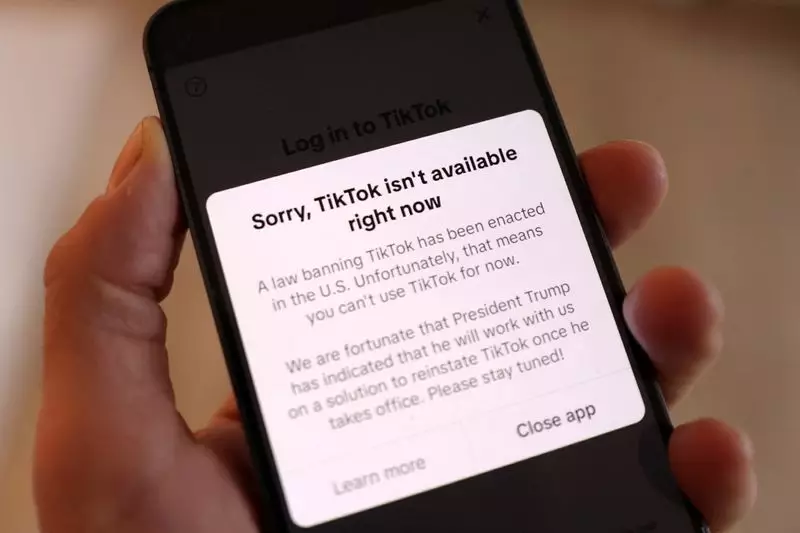The situation surrounding TikTok has escalated into a complex fusion of technology, politics, and national security. Following an executive order signed by former President Donald Trump, the highly popular short-video platform has seen its availability on major app stores in the United States dramatically impacted. This article delves into the ongoing developments, the implications for stakeholders, and the potential future of TikTok in the U.S. market.
Executive Orders and Delays
The executive order, which announced a 75-day delay for enforcing the ban on TikTok, came as a response to pervasive concerns regarding data security and foreign influence from China. Despite the reprieve, TikTok has not regained its place on the Apple and Google app stores, leaving users in limbo. Analysts speculate that the tech giants are waiting for clearer legal guidelines to avoid penalties associated with hosting the application. The lack of a definitive resolution highlights the intricate web of regulations that now envelops TikTok, demonstrating how intertwined app availability is with broader geopolitical tensions.
With TikTok’s app status hanging in the balance, significant financial implications loom for its stakeholders. While Trump’s reassurance regarding the avoidance of fines provided some temporary relief, it does not mitigate the uncertainty faced by those associated with the platform. Both Google Play and the Apple App Store have placed disclaimers indicating the pause in downloads due to current U.S. legal stipulations, illustrating the tightrope tech companies must walk in navigating legal frameworks while maintaining user engagement.
Investment Opportunities and Challenges
Former U.S. Treasury Secretary Steven Mnuchin recently mentioned that he had paused his bid to acquire TikTok, as negotiations with China fell through. His characterization of TikTok as a “terrific business” highlights the platform’s potential value, despite its current challenges. Mnuchin stressed the importance of transferring technology away from ByteDance to alleviate concerns about foreign control. This sentiment is echoed by other investors, such as Bill Ford, who propose that altering U.S. ownership does not necessarily entail a complete sale of the app.
The ownership distribution of ByteDance is worth noting in the context of ongoing discussions. Current reports indicate that institutional investors, including prominent firms like BlackRock and General Atlantic, own nearly 60% of ByteDance, while founders and employees hold the remaining shares. This diversity in ownership may serve as a potential buffer against concerns regarding too much foreign control, yet it does not entirely eliminate the scrutiny facing the platform from U.S. lawmakers.
The fate of TikTok in the United States encapsulates a broader struggle between navigating technological innovation and ensuring national security. As various stakeholders, including tech companies, investors, and government officials, grapple with the implications of TikTok’s ownership and operations, the platform’s future remains uncertain. What emerges from this situation will likely shape not just the trajectory of TikTok but also the landscape of international tech relations in years to come.

